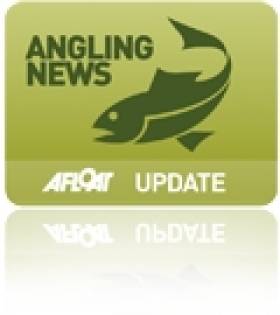Displaying items by tag: migratory fish
Salmon Return to the Tolka After More Than a Century
Dublin has yet another thing to celebrate with the news that wild Atlantic salmon have returned to what was long regarded as the dirtiest of the capital's inland waterways.
The Irish Independent reports that the fish have been spotted along the banks of the Tolka between Glasnevin and Finglas for the first time in at least 100 years.
Efforts to clean the river in recent years, as well as the removal of man-made weirs, are thought to have aided the recovery of the Tolka, which now provides plentiful nutrients for migratory fish.
Atlantic salmon in particular are considered by scientists to be a 'bio-indicator' in that they require a very high standard of water, so their presence in a given area defines it as a healthy environment.
The Tolka joins the Liffey and the Dodder in the list of Dublin rivers hosting thriving stocks of young fry in what has been a bumper year for salmon angling across the country.
The Irish Independent has more on the story HERE.
























































